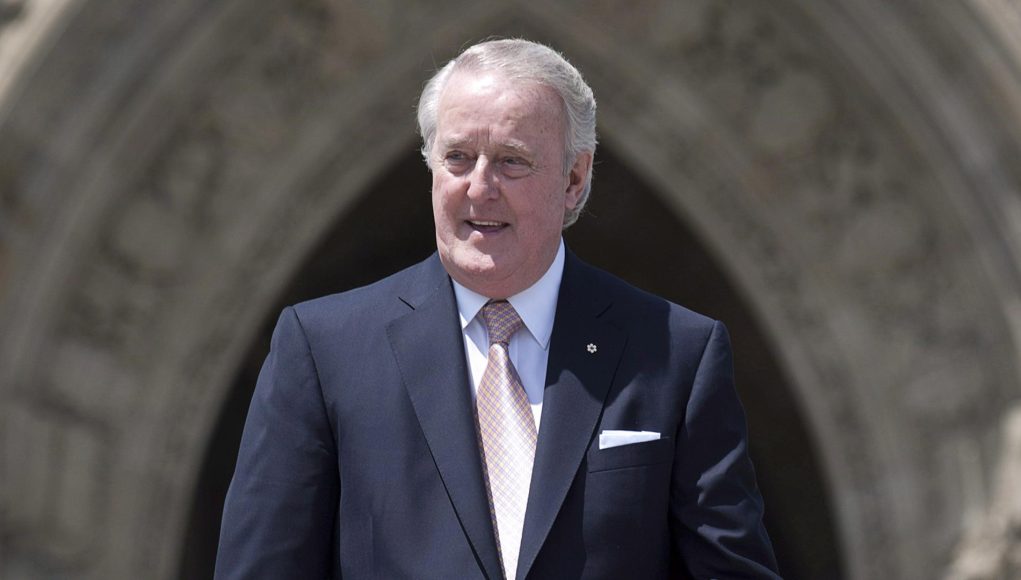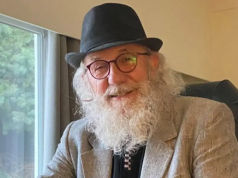Bits and pieces
HodgePodge by Charlie Hodge
Dismantling of apartheid.
A true Canadian icon has died. The pending question, which only time will tell is, will we speak better about the man now that he is dead than when he lived?
Martin Brian Mulroney, Canada’s 18th prime minister, was without question one of the more controversial and much maligned members of the who’s who in Canadian household names. With Mulroney you either loved him or hated him. Few of us really knew him.
Born March 20, 1939 in Baie-Comeau, Quebec Mulroney PC CC GOQ studied political science and law before gaining prominence as a labour lawyer in Montreal. Best remembered for signing the historic free trade agreement with the United States and Mexico, Brian served as Prime Minister from 1984 to 1993 much of which was shadowed by tumultuous times, protests, and alleged scandals.
Raised in a remote pulp and paper town in northeastern Quebec, the third of six children, Brian’s Irish Canadian Roman Catholic parents expected him to work hard at the mill and contribute while at home. He grew up speaking fluent French and English but because there was no high school in his hometown, was educated at a boarding school in Chatham, New Brunswick.
In his memoirs Mulroney wrote his father had discouraged him from becoming an apprentice at the mill where he worked. “I remember he said, ‘Listen, Brian, the only way out of a paper mill town is through a university door.’”
Mulroney listened and studied political science at St. Francis Xavier University in Antigonish, Nova Scotia. That’s where the politician disease kicked in. At SFXU he first worked as a volunteer for the Progressive Conservative Party, then studied law at Dalhousie University in Halifax and Laval University in Quebec.
According to freelance writer Ian Austen Mulroney postponed entering politics for a few years after graduation to pursue a business career, seeking to achieve financial independence to support his mother and
younger siblings. That path led to his being named president of the Iron Ore Company of Canada.
Although he had never run for elected office, Mulroney joined a field of contenders including Joe Clark, who emerged as Tory party leader. Clark became prime minister in 1979 and headed a minority government that lasted only six months. Brian’s defeat in that1976 party leadership battle led to depression and alcohol abuse. “This was a difficult period for me, and I did not handle it well at all,” Mulroney wrote later, “I began to drink quite heavily with friends over lunch and dinner, and these sessions frequently degenerated into baleful expressions of recriminations and regret.”
“The drinking was unquestionably a problem, I think, graduating to a serious problem,” he confessed on television in 2007. In 1980, though, I woke up one morning and said I am never going to have another drink.”
Mulroney took on Clark again in 1983, this time successfully, became party leader, and one year later the Progressive Conservatives won a resounding victory.
That first term saw Canada emersed in a divisive debate surrounding the proposed trade deal with concerns that the United States would eliminate Canada’s independence and expose its manufacturing businesses to huge job losses. The forerunner to NAFTA was probably the most controversial of Mulroney’s ideas -protested by many Canadians from the start.
Despite it all Canadians liked the man, largely, and liked the fact that someone was standing up to the United States on global issues such as apartheid. His popularity had much to do with his persona. He always adorned immaculately tailored, dark blue, double-breasted suits. His hair was perfect. His verbal skills were outstanding. He knew how to work a crowd starting off his presentations with a joke or whimsical short story. He was as a skilled debater and orator and the hotter the debate the better he worked.
Mulroney won re-election by a convincing margin in 1988.
With that win Mulroney became the first Canadian leader in 35 years to win back-to-back parliamentary majorities. That victory opened the door for Canada to ratify the free-trade pact with the United States – the
forerunner to NAFTA. It was also when the unravelling of the ball of yarn began.
Mulroney’s second term was far more troubled. In his efforts to cut Canada’s deficit Mulroney’s planned goods-and-services tax became widely resented and his efforts to shove national unity between French- and English-speaking Canadians blew up in his political face. It kindled a strong resurgence of Quebec separatism which had already rattled the nation.
His success with NAFTA did not help our economy fast enough to suit Canadians and high unemployment numbers kept climbing. Mulroney had lost his shine in many Canadian homes and the job was losing its shine for Brian. Rumours and accusations of inappropriate discussions, financial misdoings and other debatable activities began to swirl in Ottawa.
Finally in October 1993 when things went sour even more with the economy and the Canadian poll ratings hitting the lowest in two decades a deeply depressed Mulroney stepped aside.
His resignation heralded a calamity for his party.
In elections that October, Ms. Campbell, the former defense minister who had succeeded Mr. Mulroney, suffered a near wipeout after just a few months in office. The Progressive Conservatives shed a staggering 151 seats to finish with just two in the 295-seat House of Commons. It was the beginning of 13 years in opposition, during which Canada’s splintered Tories reorganized to emerge as the Conservative Party of Canada under Stephen Harper.
Right or wrong he never hid from what he referred to as “great causes,” such as acid rain in North America to Canada’s role in squashing of apartheid in South Africa.
Mulrooney died last Thursday in Palm Beach, Florida at age 84.
***
Mulroney’s departure at this time of year inspires easy recognition of the circle of life. Appropriately Easter weekend is not far away, spring weather is upon us, greenhouse supply shops are opening, and gardens plans are underway.
Tez has been working like crazy already with numerous seeds stuck under heat lamps and on warming trays. I think this is my favourite time of year (right after Christmas).
Perhaps it is because of the positive energy and hopes that spring encourages, or maybe its just the getting outside, either way the seasonal cycle suits me just fine. It seems of course that we are not the only ones making plans.
On Sunday (March 10) the Okanagan Master Gardeners are holding their annual Seedy Sunday at the Parkinson Rec Centre. The local group is a non-profit group who have a mandate of educating folks about seeds and the need to preserve healthy organic, heirloom and rare seeds.
I always enjoy this vent and people are so willing to share their knowledge. A number of plant and seed related businesses also take part in the event which runs from 10.am to 3 pm. For more go to their Facebook page KelownaSeedySunday and magic.org or email kelownaseedysunday@gmail.com.







